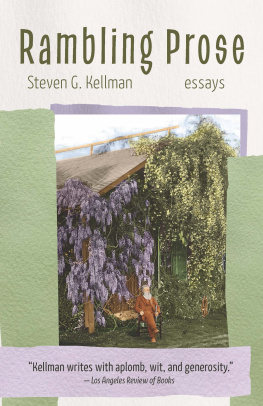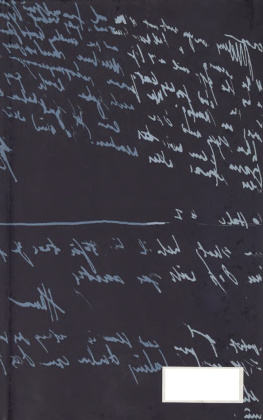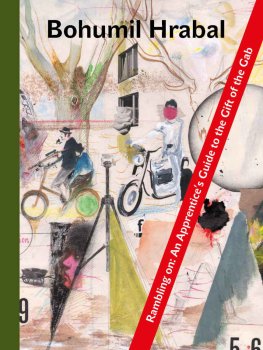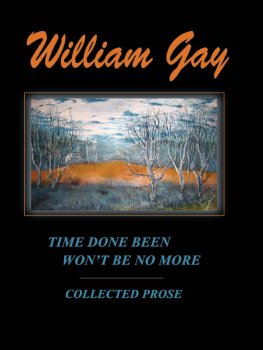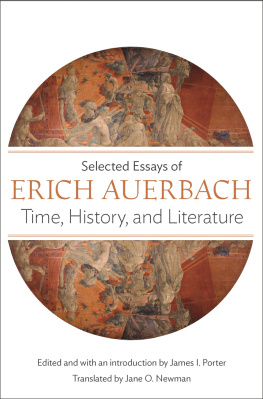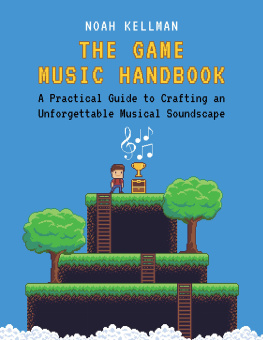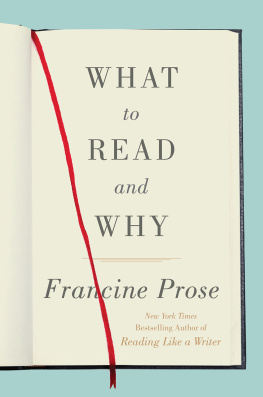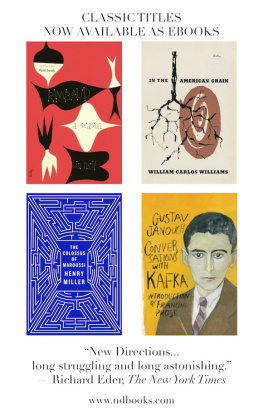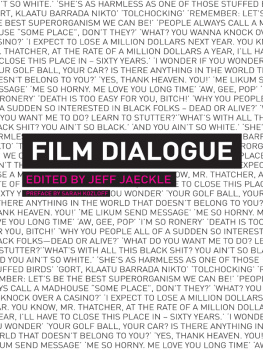Contents
Page List
Guide
Rambling Prose
Rambling Prose
ESSAYS
STEVEN G. KELLMAN
TRINITY UNIVERSITY PRESS
San Antonio
Published by Trinity University Press
San Antonio, Texas 78212
Copyright 2020 by Steven G. Kellman
All rights reserved. No part of this book may be reproduced in any form or by any electronic or mechanical means, including information storage and retrieval systems, without permission in writing from the publisher.
Book design by BookMatters
Cover design by Elyse Andrews
Author photo by Calvin Hoovestol
Cover: Carr residence in Pasadena, now Carmelita Park, ca. 1895. Digitally reproduced by the USC Digital Library. From the California Historical Society Collection at the University of Southern California.
ISBN 978-1-59534-934-7 paperback
ISBN 978-1-59534-945-0 ebook
Trinity University Press strives to produce its books using methods and materials in an environmentally sensitive manner. We favor working with manufacturers that practice sustainable management of all natural resources, produce paper using recycled stock, and manage forests with the best possible practices for people, biodiversity, and sustainability. The press is a member of the Green Press Initiative, a nonprofit program dedicated to supporting publishers in their efforts to reduce their impacts on endangered forests, climate change, and forest-dependent communities.
The paper used in this publication meets the minimum requirements of the American National Standard for Information SciencesPermanence of Paper for Printed Library Materials, ANSI 39.481992.
CIP data on file at the Library of Congress
24 23 22 21 20 | 5 4 3 2 1
Contents
Preface
A century ago, Virginia Woolf, echoing Samuel Johnson, announced that she was writing her essays for the common reader. But one of the recurring themes in this collection is that a seismic cataclysm has shifted the tectonic plates of contemporary culture. On or about December 2010 human character changed. Booksellers became almost as rare as shoemakers, and the term antiquarian bookstore turned into a redundancy. When not preempted entirely by viewing images, reading migrated to electronic devices. An essayist can hope to reach only the uncommon reader, since anyone engaged in the sustained, isolating activity of reading a printed book is as uncommon today as a snow leopard.
The fact that this collection begins with meditations on silence and marginality and concludes with reflections on final words is only partly because essayists, like poets and serious novelists, cannot count on committed readers. Dismissing the term famous novelist as an oxymoron, Gore Vidal once asked: How can a novelist be famousno matter how well known he may be personally to the press?if the novel itself is of little consequence to the civilized, much less to the generality? However, more fundamental to the arc of this book is the realization that, at root, all writing confronts the fact that we are born and die without knowing why. Only suicides and those convicted of capital crimes have the privilege of choosing final words.
But these essays are not unusually morbid. If not especially infused with joie de vivre, they are at least driven by mystre de vivre, powerful curiosity about the odd ways in which we exhaust our mortality. Their diverse subjects include literature, education, and movies. Like the rambling rose, a shrub that spreads over fences, trees, and other objects it encounters, this volume sprouts blossoms along the way. Rambling Prose is a miscellany collected over the course of two decades. Although I have tweaked a few obvious anachronisms here and there, I have resisted the temptation to rewrite the essays. The collection remains a record of my thoughts in particular times and places. Some of the essays were written on assignment for particular publications; others were thrown over the transom, into the hands of receptive editors. I am grateful for their encouragement, for the hospitality of Trinity University Press (especially its director, Tom Payton, its managing editor, Sarah Nawrocki, and its senior acquisitions editor, Marguerite Avery), for the vigilance of keen-eyed copyeditor Emily Jerman Schuster, and, most essentially, for the unwavering support of my uncommon first reader, my wife, Wendy Barker.
Silence of the Limens
That Goes without Saying
A Treatise on Silence
2010
Music is the cup that holds the wine of silence. Sound is the cup, empty; noise is the cup, broken.
Robert Fripp
My mother was a literalist of the imagination. A dirty mouth, she knew, demanded scouring. She was also the empress of congealed cream: a sultana of soap. When I repeated a filthy word overheard at the playground, she straightaway grabbed her four-year-old son by the neck, marched him into the bathroom, held him over the sink, and washed his mouth. Though Ivory bars were 99 percent pure, the caustic taste of that chalky cake might have been enough to make a young boy swear off speech, even speech devoid of swear words. Yet other children have had more telling reasons to go mum. Raped at seven, Maya Angelou went mute for the next five years. Separated from his parents at six, Jerzy Kosinski claimed not to have spoken throughout his ordeal of surviving the Nazi devastation of eastern Europe. At fifteen, the Little Mermaid sacrificed her tongue for the chance to be loved by a mortal prince.
Will you please be quiet, please demands a character in the Raymond Carver story. For most of us, quiet abides in the ethereal expanses beyond twenty thousand hertz or in the nether realm beneath twenty hertz. What we do not or cannot hear might, like Bishop Berkeleys tree falling in the forest, not even exist. Auditory range contracts with age, which is why classroom teachers tend to be oblivious to The Mosquito, a cell phone ring tone whose frequency, set as high as seventeen kilohertz, is nevertheless heard by youthful students more attentive to messages from peers than from pedagogues. Senescence: the contraction into soundlessness. The parameters of silence vary among bats and elephants (who register ultrasonic vibrations), whales and rhea (intimate with infrasonic vibrations), and middling humans (proud arbiters of what is infra and ultra). Alternative universes collide in houses where dogs scamper about alert to sounds unheard by the masters ears.
Whatever the sound of silence, it is for one lyricist, Paul Simon, pathological. Silence, he sings, like a cancer grows. For another, Joseph Mohr, it is sacred. Mohrs familiar Stille Nacht, Heilige Nacht equates the silence of the night before Christmas with its holiness. The silence of serenity is not identical with the silence of despair, any more than the silence of the lambs ought to be confused with the silence of the tapeworms or the owls. Reflecting a taxonomy of silences, the standard system of musical notation employs several different marks to punctuate the intervals between performance, including the caesura (//), general pause (-), fermata (), and breath mark (). Silences resonate differently for us depending on age, personality, and philosophy. Renouncing speech is a way for ascetics to purge themselves of worldly impurities. But if culture is, in Lionel Trillings resonant phrase, the buzz and hum of implication, then silence is antisocial, a rude refusal to participate in the raucous human comedy. Hasnt art been the human creatures rebellion against silence? asks composer Toru Takemitsu, as if succumbing to silence is a repudiation of humanity.

